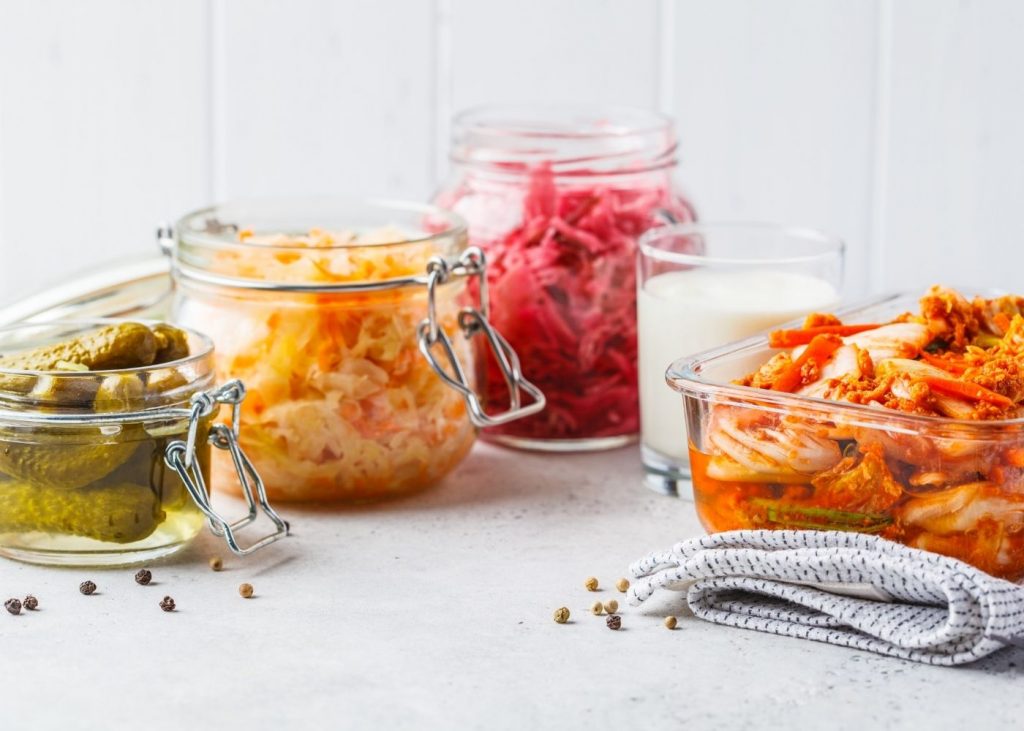Your gut microbiome is a critical aspect of your overall health and is especially important during pregnancy. Most women know that great nutrition helps grow a healthy baby, but did you know that the health of your gut can affect your chances of getting pregnant?
What is the microbiome?
Your microbiome is made up of trillions of microorganisms that predominantly live in your intestinal tract. Microbes actually outnumber the amount of cells in your body – ten to one! The bacteria in your microbiome are responsible for many of your body’s daily functioning such as, helping to digest food, keep your immune system working properly, and protect against disease.
Does gut health impact fertility?
For a foetus to thrive, it needs a healthy, fertile environment. That means that, for those who have poor gut health, it could be challenging to conceive.
Learn more about how I help couples conceive naturally using pregnancy naturopathy.
Some research into gut health during pregnancy has suggested that poor gut health can cause an estrogen imbalance and lead to infertility issues among both partners. Having poor gut health can actually affect the absorption of key nutrients which are needed to create a healthy environment for egg and sperm to flourish.
How your gut changes during pregnancy
For so many reasons, one of the best things you can do for your baby during pregnancy is to eat a healthy, balanced diet full of vitamins and minerals. During pregnancy (especially in the later stages) your body goes through a lot of transformations. Your immune system changes, inflammation can increase, and your microbiome is impacted. Both progesterone and estrogen increase during pregnancy and your metabolism slows down to get more nutrition from the foods you eat.
What are the risks of poor gut health during pregnancy?
Pre-eclampsia is a condition that can occur in the later stages of pregnancy and can have dangerous implications for both you and your baby. Symptoms include high blood pressure, liver dysfunction and lower birth weight for your baby.
Recent studies have shown that the risk of gestational diabetes can increase when you have poor gut health during pregnancy.
When you have poor gut health, your baby’s microbiome will suffer because they receive 100% of their microbiome from you. Their microbiome continues to develop after they’re born, especially as the milk they receive from you can build their immunity and gut flora.
Breastfeeding
Did you know that the way you give birth and whether you breastfeed or not can have an effect on the diversity of your baby’s gut bacteria? Research has shown that a vaginal birth and breastfeeding can provide enhanced bacterial diversity for your baby. If this is not the case for you, don’t worry – there is still so much you can do.
Contact me to book an appointment and find out how pregnancy naturopathy can help.
The benefits of having a baby with good gut health include:
- They experience fewer allergies and eczema because they have been exposed to more bacteria and develop a stronger immune system.
- Decreased inflammation
- Reduced need for antibiotics
- Less hospital admissions in the first year of life.
How to improve your gut health during pregnancy
Eating prebiotic and probiotics foods
Probiotics are living bacteria that reside in your digestive tract naturally. They can strengthen your immune system, improve digestion, hormone health and overall gut health. Probiotic foods include:
- Kombucha
- Kefir
- Miso
- Apple cider vinegar

Prebiotics are the things that fuel the production of probiotics. Some prebiotics include:
- Garlic
- Onions
- Asparagus
- Oats
- Flaxseeds
- Bananas
- Apples
Reducing your intake of processed foods
For your microbiome to thrive, your need good bacteria. When the bad bacteria in your gut outweighs the good, problems can arise. Because sugar is a food for bad bacteria, eating too much of it can cause havoc for your microbiome.
Reduce your stress levels
Although there is still so much to learn about stress and gut health, what we do know is that the gut produces more serotonin than the brain and is now often being referred to as our ‘second brain’. Because stress reduces our ability to digest food and absorb nutrients, it can tilt our microbiome balance towards having harmful, rather than beneficial, bacteria.
Stress during and after pregnancy is common, but can be reduced by using a few simple techniques. Getting good sleep during pregnancy, practicing yoga, and taking up mindfulness meditation has shown to reduce stress and can enhance gut health.
Pregnancy naturopathy can help
Studies into the link between pregnancy and the microbiome are all relatively new, and there is so much more for scientists to discover. What we do know is that whether you’re trying to create an environment where an egg and sperm can flourish, or you want your baby to be the healthiest it can be, pregnancy naturopathy can help you.
To find out more about the services I offer, give me a call on (03) 9380 8099
